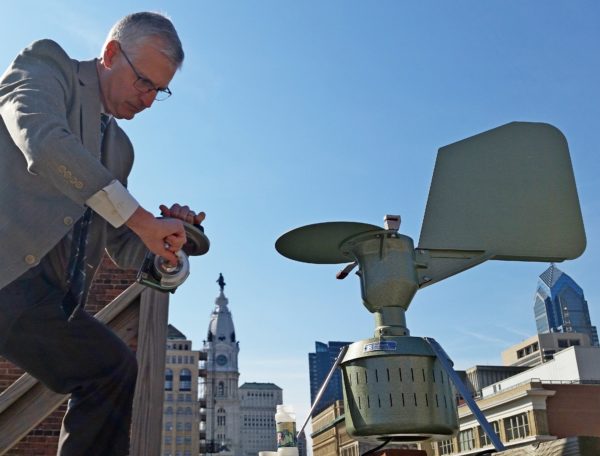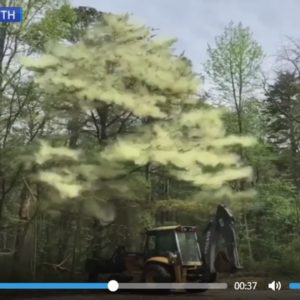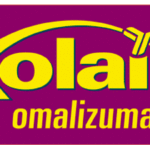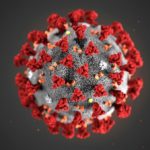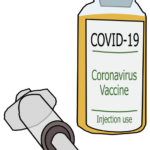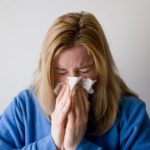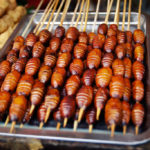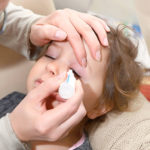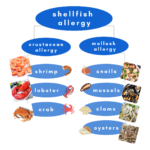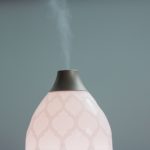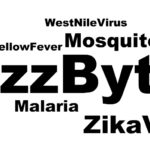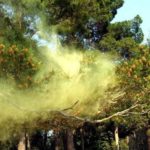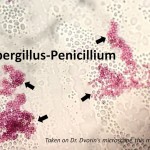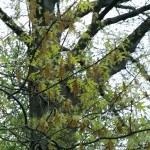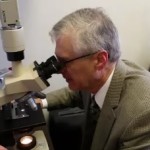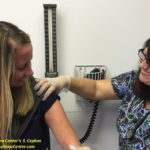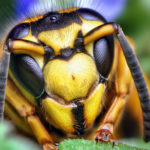Nothing To Sneeze At – “Extreme” Tree Pollen, Allergy Misery & the NJ Pollen “Storm” Video
Nothing To Sneeze At: Extreme Tree Pollen Storm Video
Mount Laurel, NJ – May 10, 2018 – Yellow pollen is coating the Delaware Valley, and The Asthma Center board-certified allergists are happy to provide their expertise on this year’s unusually “extreme” tree pollen season, allergy misery, and video everyone’s talking about: The Millville, NJ Pollen “Storm Video” shared on Facebook and with 6ABC Philadelphia.
Pollen Storm Video (Pollen Bomb Video from Millville, NJ)
According to The Asthma Center’s board certified allergist, Dr. Marc Goldstein, this video (filmed by Jennifer Henderson of her husband Eric at work Monday 5/7/2018 in Cumberland County) illustrates in a dramatic way the abundance of pollen that one pine tree can produce and release. While this “pollen storm” may not happen for every tree, the video does show quite vividly the threat to allergy sufferers over the two to four week period when any given tree may release this much pollen.
Pollen grains are tiny and invisible to the naked eye. Trees, including pine trees which are ramping up their pollen production now, produce millions of pollen grains each season.
“Extreme” Tree Pollen for the Delaware Valley
For more than three decades, The Asthma Center’s Dr. Donald Dvorin has been monitoring the air in our region and is the only official pollen and mold spore counter certified by the National Allergy Bureau.
According to Dr. Dvorin, we are seeing “extreme” levels of tree pollen in our area which peaked around May 4, 2018. However, tree pollen levels have remained elevated (above 1000 tree pollen grains per cubic meter of air/24 hrs) for nearly every day since. Further, Dr. Dvorin reports that, compared to last year (spring 2017), tree pollen was delayed approximately 10 days because of March’s wintery weather and snow as well as “chilly” days in April.
“This time last year, we were almost done with all the pollen, but this year, we are much later than we usually are, and we are seeing it last a lot longer,” says Dr. Dvorin.
Dr. Dvorin also cautions that Pine pollen (Scrub Pine or Pitch Pine pollen from the NJ Pinelands makes our region unique from an allergy perspective), is just “taking off” and may not peak until the end of May – beginning of June. Stay informed – The Asthma Center provides daily counts, Monday – Friday, and you can follow our local pollen counts on our website, Facebook page, and direct to your inbox by subscribing for free here.
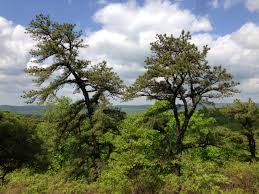
Spring Allergy Misery: Allergy Survival Tips
All of the board certified Allergists of The Asthma Center report that this appears to be a particularly difficult spring for allergy sufferers.
From The Asthma Center allergists, we have collected 5 tips beyond the conventional wisdom that can significantly reduce pollen exposure, especially on “bad pollen” days, and hopefully help you keep “merry for the month of May!”
1. Wash your face, particularly the eyebrows, after being outdoors. Microscopic pollen grains can cling to eyebrows and skin. Just like it’s important during flu season to wash your hands to prevent flu symptoms, frequently washing your face and eyebrows after being outdoors can prevent eye and nasal allergy symptoms.
2. Wash your hair before going to bed at night after extended time spent outdoors and change pillowcases frequently. Hair can be a magnet for microscopic pollen grains and mold spores, especially when extended time is spent outdoors. For those who are allergic, washing your hair (or your children’s hair) and changing pillowcases frequently can reduce exposure during sleep and help reduce morning allergy flares.
3. Avoid wearing contact lenses or switch to daily disposable contacts to avoid allergens building up on the lenses. Pollen and other allergens as well as environmental irritants can all buildup on contact lenses leading to increased eye allergy symptoms during the peak season. Switching to eyeglasses or daily disposable contacts will help avoid this common exposure. Wear “wrap-around” sunglasses when outside for more eye protection from pollen particles.
4. Beware of tracking pollen, particularly grass pollen into your home. Overlooked sources that may “sneak” pollen into the home include kids’ shoes and clothing, pets especially after playing outside in the grass, and morning newspaper sleeves.
5. Change air filters frequently for both your home and car. During the peak allergy season, pollen can build up rapidly on air filters and then be distributed through ventilations into both homes and cars. Use the highest allergen filter available and change filters frequently to reduce this risk.
Antihistamines Not Enough Allergy Relief?
If reducing your exposure to pollen in combination with over-the-counter antihistamines and nasal sprays don’t work on your symptoms, it’s still not too late to get relief. A board-certified Allergist can help.
At The Asthma Center, our allergists and pediatric allergists help our patients manage their allergies by determining what local spring allergens cause symptoms. For example, with spring allergies, we identify which local trees (including Oak, Pine, Mulberry and Birch) and grasses trigger allergy symptoms by using minimally invasive in-house diagnostics, like allergy skin testing. Pairing these results with local knowledge of allergy triggers like pollen, ragweed and mold, our allergists develop personalized plans that treat not only the symptoms but also the cause of allergies. And because allergy symptoms often spike with pollen, we know exactly when to adjust allergy medication – providing more relief when conditions are bad and less medication every time else.
Our allergists, pediatric allergists, and asthma specialists treat patients in 9 convenient locations throughout the Delaware Valley.
The National Allergy Bureau is a nonprofit organization affiliated with the American Academy of Allergy, Asthma, and Immunology that oversees and certifies pollen counting stations across the US. The Asthma Center operates the only certified pollen and mold stations in the Delaware Valley, with one location in Philadelphia and the other in South Jersey (Mount Laurel, NJ). You can follow our local pollen counts on our website, Facebook page, and direct to your inbox by subscribing for free here.
The Asthma Center is the Delaware Valley’s Official Pollen and Mold Spore Count Station
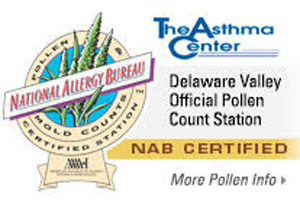
Ask about our Special Spring Saturday Hours for New Patients (available in selected locations)!
PA: (215) 569-1111 ![]() NJ: (856) 235-8282
NJ: (856) 235-8282
Center City Philadelphia • Society Hill Philadelphia • Northeast Philadelphia
The Main Line – Bala Cynwyd PA
Mt. Laurel NJ • Woodbury NJ • Hamilton – Princeton NJ • Forked River NJ
For interviews and tours of the Delaware Valley’s only certified pollen and mold spore stations for the National Allergy Bureau (NAB) certified pollen, ragweed, and mold spore counting stations in Philadelphia, PA and Mt. Laurel, NJ, please email gwoodlyn@asthmacenter.com. The health information contained in this article is meant for basic informational purposes only. It is not intended to serve as medical advice, substitute for a doctor’s appointment or to be used for diagnosing or treating a disease. If interested in purchasing historical pollen and mold spore counts, please email gwoodlyn@asthmacenter.com for information.
Recent
Popular

